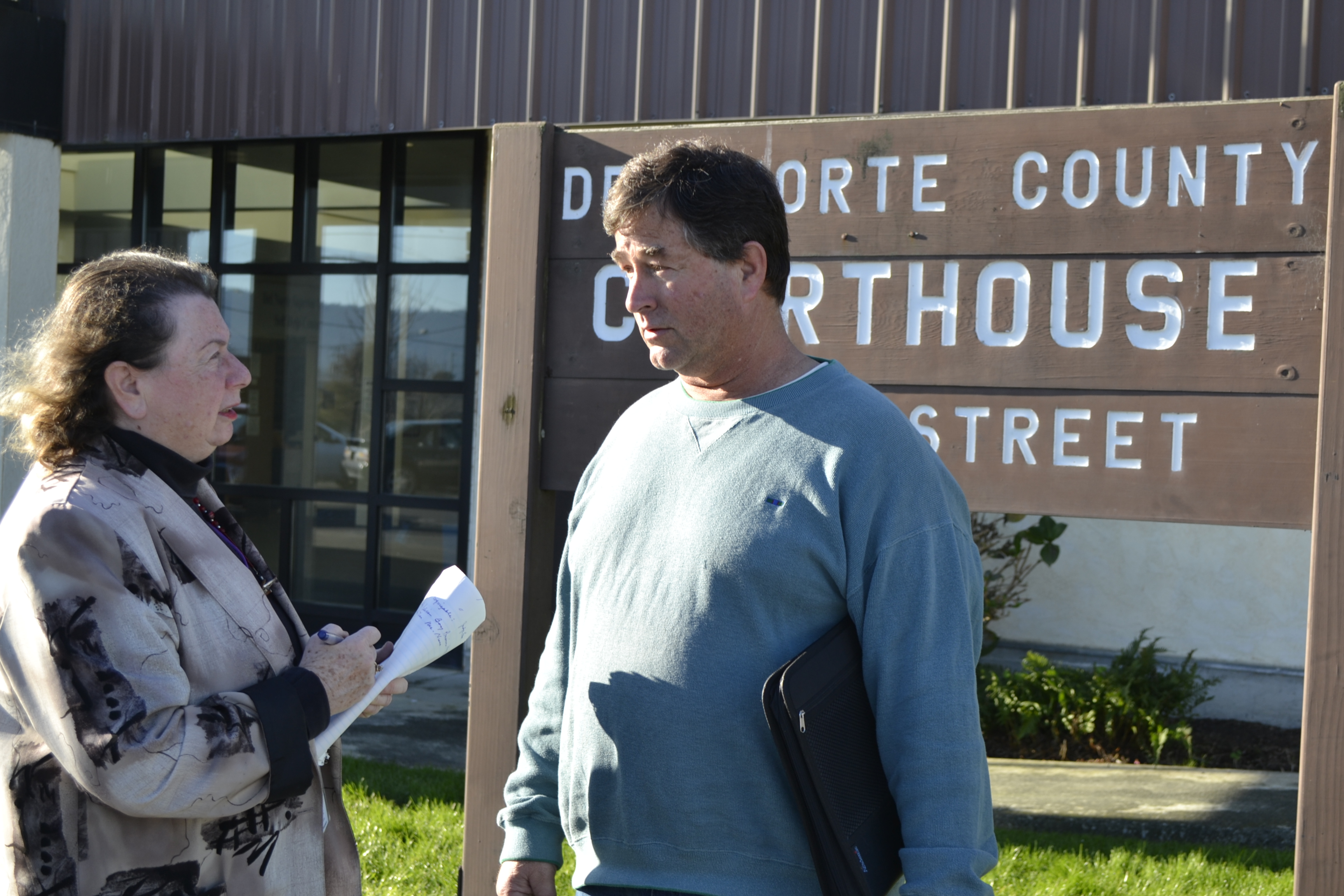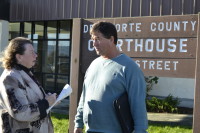New Judge Darren McElfresh had a variety of issues come up in his courtroom this morning among them was a breach of contract, and a request for a restraining order. But the one case I expected to hear was not on his docket. Judge McElfresh appeared surprised to find that the motion was filed, noticed, but not docketed.
Case CV PT 13-1039. Nunn v LeBlanc. On it’s surface it sounds like a simple case concerning real property. A simple case is one that gets resolved in short order. This case has been going on for years with a myriad of twists and turns.
“I’ve proved I’m entitled to the property and LeBlanc chose not to contest the matter. Yet, the court extends a layer of protection to her that has eliminated my constitutional rights. It has taken me years, but I’ve won my cases. Everything is complete except for the last hearing to finalize everything,” said Mr. Nunn.
Former Judge Chris Doehle and Judge Follet were disqualified, but not before, per Mr. Nunn, former Judge Doehle’s decision to set precedent in court that allows attorney’s to lie to the court and that they are protected under freedom of speech despite California law that makes it criminal for an attorney to lie to the court.
Having the local judges disqualified put the case before San Francisco Judge Lamb who’s most recent ruling dismissed the case.
Mr. Nunn says, “The basis for dismissal is seriously defective and the only way the court can beat me is by denying access altogether.”
I asked Mr. Nunn, “Doesn’t the Constitution guarantee you the right to oppose the grounds for dismissal?”
Mr. Nunn replied, “Yes, but it means that in all likelihood it will finish out as a constitutional rights violation rather than the underlying property rights matter. And that means Federal court. I’m being denied my constitutional right to access to the local court. Never has the court offered any legal or logical basis for denying access to the court. I was expecting to be on the docket today, and this was the hearing that would have also challenged Doehle’s decision setting precedent that attorney’s that lie to the court are protected under the 1st Amendment.”




Exactly what does a prisoner at PB have to do with a property case that does not have them as defendent or plaintiff?. A PB prisoner would most likely be involved in a criminal rather than civil case. What is the adjudicated case law that refers to Constitutional rights in this instance? Persons who have studied Constitutional law for a great portion of their lives would exhibit diverse opinions on such a case. What was the lie? Was it perjury, or what? Was it pertinent to the case? Please explain! Many property cases drag on for decades
Glad you asked. “Access to the courts is indeed a right guaranteed to all persons by the federal and state Constitutions. It is regarded as arising from the First Amendment right to petition the government for redress of grievances, a right also protected by article I, section 3 of the California Constitution.” Baba v. Board of Supervisors (2004) 124 Cal.App.4th 504, 525.
I compare the court’s denial of my access to prisoner’s rights because even the incarcerated receive some form of hearing or consideration when they make civil complaints. In my case, I have established all the evidence and then some. The respondents have defaulted, no contest. Only by denying access altogether can this court beat me. And that’s what has occurred.
California is a private landowner and has the right to pass law making it illegal for a licensed attorney to “mislead or deceive” the court. B&P 6128 and others. In my case, as the opposing attorneys ran out of defenses, one of them fabricated a claim. This attorney claimed that the trial court judge awarded property to the cross-defendant although the court did just the opposite, denying cross-defendant’s claim for the property. And, the property was titled in a third party’s name, so the court had no personal or subject matter jurisdiction to award the property. When I challenged the fabrication, the offending attorney never denied she fabricated the statement, but asked Judge Doehle to consider it protected under the First Amendment. Judge Doehle did so and then fined me $2,500 for challenging the fabrication. Also, California Legislature on anti-slapp statutes mandate I get an evidentiary heaing. If held, I could easily prove the offending fabrication just that. Nonetheless, Judge Doehle adamantly denied my state mandated evidentiary hearing.
I’ll be happy to answer more. Thanks
For laws and rules against attorneys fabricating facts to the court, also see Business and Professions Code 6068 and California Rules of Conduct, Rule 5-200. For the case law, see Flatley v. Mauro (2006) 39 Cal.4th 299.
Holy crap. Really?
Really. The court has reached the point in my case that it does not even attempt to make an excuse for denying access to the court. That is why this case will finish out in federal court.